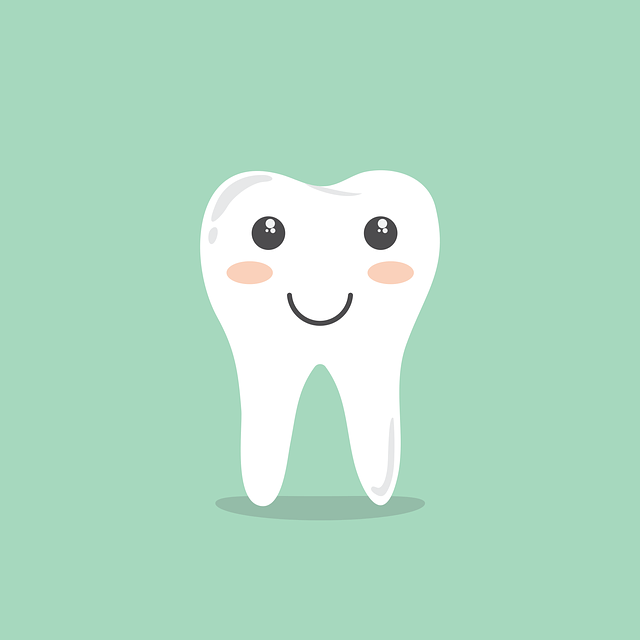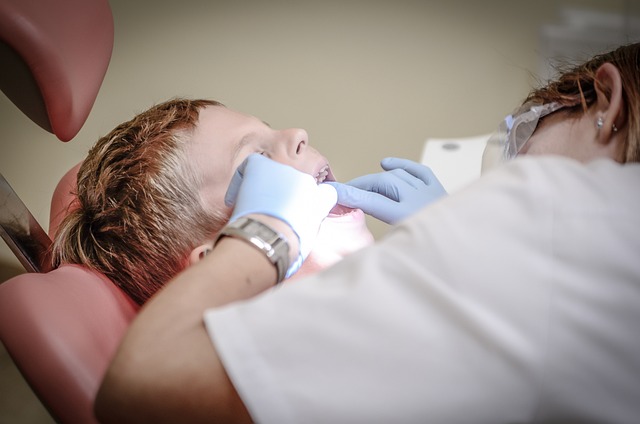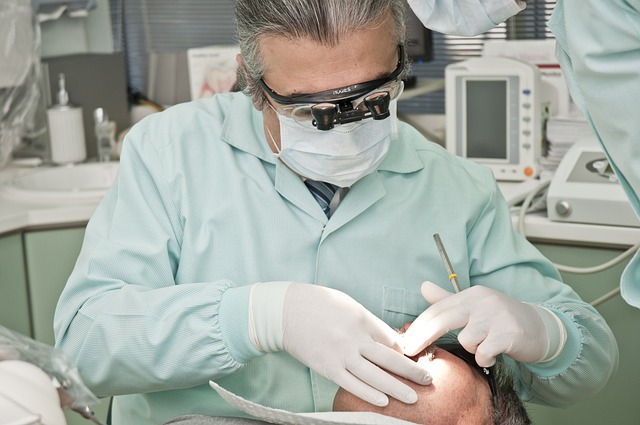Relief for Itchy Gums: Soothing Solutions after Tooth Extraction
Are you experiencing that irritating itchiness ????in your gums soon after a tooth extraction? If so, you’re not alone. Many people go through ????this discomfort, but fortunately,???? there are numerous soothing solutions to alleviate those itchy gums. In this article, we’ll explore some effective remedies that will not only provide relief but also make your recovery journey a???? whole lot smoother. So, sit back, relax, and let’s dive into the world of itch-free gums after???? tooth extraction.
1. Understanding the Itch: Why do Gums Itch After???? Tooth Extraction?
After undergoing a tooth extraction, it’s not uncommon to experience some discomfort and itching sensation???? in your gums. While it may seem bothersome, understanding why gums itch after a tooth extraction can help ease your worries and provide you with the necessary information to manage this post-operative symptom.
Possible Causes???? of Gum Itching:
- Healing Process: Itching gums are often a sign that your body is healing.???? As the incision site begins to heal, it can cause mild irritation and itching. This is a normal part of the healing process and usually subsides after a few days.
- Dry Socket: A dry socket occurs when the blood clot that forms after a tooth extraction becomes dislodged or dissolves prematurely.???? This can lead to increased sensitivity and an itchy sensation in the socket area. If you suspect you might have a dry socket, it’s important to contact your dentist for further ????evaluation and treatment.
- Allergic Reaction: In rare cases, itching gums after???? a tooth extraction may be due to an allergic reaction to the medications used during the procedure or the materials used for stitches. If you experience severe itching, swelling, or difficulty breathing, it’s crucial to seek immediate medical attention.
It’s essential to???? avoid scratching or picking at the itching gums, as this can cause further irritation or delay the healing process. Instead, try some home remedies to alleviate the itch, such as gently ????rinsing your mouth with saltwater or using over-the-counter oral numbing gels recommended by your dentist. Remember, if the itching persists or becomes increasingly uncomfortable, it’s always best to consult ????your oral healthcare???? professional for proper evaluation and guidance.

2. Soothing???? the Sensation: The Importance of Relief for Itchy Gums
When it comes???? to oral discomfort, ????itchy gums can be particularly bothersome. Fortunately, there are several effective and simple ways to find relief. Soothing the sensation of itchy gums is???? essential not only for our comfort but also for maintaining good oral health. Here are some helpful tips:
Proper oral hygiene
One of the easiest and most effective ways to relieve itchy gums is by practicing good???? oral hygiene. Ensure you brush your teeth gently twice a day using a soft-bristled???? toothbrush. Don’t ????forget to include your gums in your brushing routine, using small circular motions. And remember, flossing is just as important! By removing plaque and food particles, you can significantly reduce gum irritation.
Use a soothing mouth rinse
An excellent way to provide immediate relief to itchy gums is by using a soothing mouth rinse. Opt for an antiseptic mouthwash that ????contains ingredients like aloe vera or chamomile, known for their calming properties. Swish it around your mouth for about 30 seconds, concentrating on the affected areas. This not only helps alleviate ????the discomfort but also promotes overall ????gum health.

3. Step-by-Step Guide: Effective Solutions for Soothing Itchy Gums
Having itchy gums can be a bothersome experience, but there are several steps you can ????take to find relief. Follow this step-by-step guide to effectively soothe your itchy???? gums:
-
????
- Maintain oral hygiene: Brush your teeth gently twice a day with???? a ????soft-bristled toothbrush and fluoride toothpaste. Be sure to clean along the gumline to remove any trapped food particles or plaque. Regular flossing is also crucial to remove debris???? between your teeth.
- Rinse with saltwater:???? Mix half a teaspoon of salt with warm water and rinse your mouth thoroughly several times a day. This ????natural solution helps reduce inflammation ????and provides temporary relief to???? itchy gums.
- Try a cold compress: Applying a cold compress on your cheeks directly over the affected area can help reduce itching and swelling. ????Wrap some ice cubes in a clean cloth and hold it gently against???? your gums for a few minutes at a time.
- Switch to a soft diet: Avoid crunchy, hard, or spicy foods that can further irritate your gums. Choose softer alternatives like soups, yogurt, and mashed potatoes that are easier to chew and won’t aggravate your discomfort.
By following these simple steps, you can effectively alleviate itchy gums and restore comfort ????to your oral health. However, if the itching persists or is accompanied by other symptoms, it is recommended ????to consult with a???? dental professional for a thorough examination and appropriate treatment.
????
Itchy gums can be an annoying and uncomfortable experience. Fortunately, there are several ????natural remedies that can provide gentle and safe relief. These remedies can help soothe the itchiness and reduce any swelling or ????inflammation you may be experiencing. Here are some effective natural approaches to relieve itchy gums: Remember, it’s essential to maintain good oral hygiene practices, including regular brushing, flossing, and visiting your dentist. While natural remedies can provide temporary relief, it’s always best to consult a dental professional if your itchy gums persist or worsen. If you’re experiencing itchy gums, there are???? a variety of???? over-the-counter options available to help provide relief. These medications are easily accessible and can offer temporary relief until you’re able to see a dentist or healthcare professional. Here are some popular over-the-counter medications that you can consider: ???? ???? ???? If you’ve ever experienced ????the annoyance of itchy gums, you know how uncomfortable it can be. Luckily, there’s a simple and refreshing solution to???? help alleviate the itchiness: ice packs. Ice packs are ????not only great for reducing swelling???? and pain, but they can also provide cooling comfort to your gums, providing instant relief and calming any irritation. Here’s how you can use ????ice packs to soothe your itchy gums: ???? ???? It’s important to note that???? while ice packs can provide temporary relief, they shouldn’t be used as a long-term solution. If you find yourself frequently experiencing itchy gums, it’s best to consult your dentist to determine the underlying cause. They can provide professional advice and recommend appropriate treatment options based on your specific needs. Itchy gums can be extremely annoying and uncomfortable, but did you know that a simple DIY remedy using saltwater rinse can work wonders in alleviating the itchiness? This natural solution has been used for centuries and is known for its healing properties. Here’s how you can easily make and use a???? saltwater???? rinse to soothe your itchy gums: 1. Gather the ingredients: 2. Mix the???? solution: 3. ????Rinse your mouth: Rinse your mouth with the???? saltwater solution 2-3 times a day???? or whenever ????your gums feel itchy. The salt helps reduce inflammation and provides temporary relief from the discomfort. Remember, this ????DIY remedy???? is not a substitute for professional dental advice, so if your symptoms persist or worsen, it’s always best to seek advice from a dentist. Try this simple and natural remedy to find relief from itchy gums! In order to alleviate itchy gums, it is important to be aware of certain triggers ????that can worsen the condition. By avoiding these triggers, you can minimize discomfort and speed up the healing process. Here are some common factors to steer clear of: By avoiding these common triggers, you can help???? alleviate itching and promote gum ????health. Remember to always be gentle when brushing or flossing to prevent further irritation, and if symptoms persist or worsen, seek professional advice from a dental professional.
After a???? dental procedure or treatment which includes gum healing, it is important to adopt a gentle oral hygiene routine to ensure a speedy and healthy recovery. Here are some helpful tips for brushing???? and flossing during this delicate period:
Remember, maintaining good oral hygiene is essential during gum healing. Regular, gentle brushing and???? flossing will help prevent infection and promote faster healing. If ????you have any concerns or questions about your oral care routine, don’t hesitate to consult with your dental professional.
If you’re experiencing itchy gums after???? a tooth extraction, it may be ????a common occurrence during the healing process. However, there are certain signs of complications that you should be aware of, indicating the need to ????seek dental advice. ????It’s important to pay attention to these symptoms to ensure that your recovery is progressing smoothly as it should. 1. Persistent and Intense Itching: Mild itching after a dental extraction is normal, but if the itching becomes persistent and intense, it could be a sign of allergic reaction or???? infection. Consult your dentist if the itching doesn’t subside or if it worsens over time. 2. Swelling, Redness, or Pus: While some swelling and redness is to ????be expected ????after an extraction, excessive swelling, prolonged redness, or the presence of pus could indicate an infection. These symptoms might require immediate attention from your dentist to prevent further complications. ???? 3. Experiencing Pain???? or Discomfort: It is common to experience some level of discomfort or pain after a dental extraction. However, if the pain becomes severe, increases over time, or is accompanied by other concerning???? symptoms, it’s advisable to consult your dentist. 4. Foul Odor or Taste: If you notice a foul odor or taste emanating from the extraction site, ????it could be a sign of infection. ????This could indicate the presence of bacteria, which should be addressed promptly. Remember, every person’s healing process is unique, so if ????you are unsure whether your symptoms are normal or not, it’s always better to be safe than sorry. Contact your dental professional for an evaluation if you experience any of the signs mentioned above. Seeking timely dental advice is crucial to address potential complications and ensure a healthy recovery after ????tooth extraction. Q: Why do gums become itchy after tooth extraction? Q: What are some soothing solutions for itchy gums after???? tooth extraction? Q: Are there any home remedies for itchy gums after tooth extraction? Q: How long does it typically take for itchy gums to resolve after a tooth extraction? Q: Are there any specific activities or habits to avoid during the???? healing process? Q: When should I contact my dentist regarding itchy gums after a tooth extraction? In conclusion, finding relief for itchy gums after a tooth extraction doesn’t have to be a daunting task. By following these simple and soothing solutions, you can ease the discomfort and promote a faster recovery process. Remember, patience is key during this healing period, and it’s important not ????to panic if you experience mild itching. Implementing good oral hygiene practices, such as gentle brushing and rinsing with saltwater, will ????help keep your mouth clean and free from irritants. Additionally, utilizing cold compresses and over-the-counter remedies like benzocaine gel or clove oil can provide that extra bit of soothing relief. Just be sure to consult your dentist or healthcare professional before using any medication. Above all, keep in mind that a healthy diet and avoiding???? spicy or irritating foods is crucial in preventing ????further gum irritation. Stick to soft, nutrient-rich meals ????to support the healing process???? and nourish your body as it???? repairs itself. We understand that tooth extraction can cause discomfort, but rest assured that with ????time and proper care, your itchy gums???? will soon settle down. If you encounter persisting or severe symptoms, don’t hesitate to reach out to your dentist for further guidance. So, take ????a deep breath, relax, and make the most of these soothing solutions. Before you know it, that itchiness will be a distant memory, and you’ll be well on your way to a healthy, happy smile once???? again.
5. Over-the-Counter Options: ????Exploring Medications for Itchy Gum Relief
6. Cooling Comfort: Using Ice Packs to Alleviate Itchy Gums
8. What to Avoid: Common ????Triggers ????that Can Worsen Itchy Gums
Frequently Asked Questions
A: Itchy gums after???? a tooth extraction can occur due to various factors. The natural healing process of your gums, along with the formation of a scab or blood clot???? on the extraction site, can lead to itching as the tissues regenerate.
A: There are several effective and simple remedies to provide ????relief for itchy gums after a tooth extraction:
1. Applying a cold compress to the affected area can alleviate itching and reduce inflammation.
2. Using a saltwater rinse (mix a teaspoon of salt in a glass of warm water) can help cleanse the area, reducing irritation.
3. Over-the-counter oral gels containing???? benzocaine or lidocaine can provide temporary relief by numbing the area and reducing itching.
4. Chewing on ????a piece of natural licorice root can have a soothing effect on itchy gums.
5. Keeping ????a good oral hygiene routine, including gentle brushing and rinsing with an alcohol-free mouthwash, can help prevent bacterial growth and reduce itchiness.
A: Yes, there are several???? home remedies that can help soothe itchy gums after a tooth extraction:
1. Applying a chamomile???? tea bag to the affected area can provide relief due to its anti-inflammatory properties.
2. Aloe vera gel, known for its soothing properties, can be applied to itchy gums???? to alleviate discomfort.
3. Clove oil, with natural numbing and anti-inflammatory properties, can be ????dabbed on the gums for relief. However, it should be used sparingly.
Remember, it is always advisable to consult with your dentist before using any home remedies.
A: The duration of itchy gums after a tooth extraction can vary depending on individual healing factors and the complexity of the extraction. Generally, the itching should subside within a week or two as???? the gums continue to heal. If the itchiness persists or???? worsens, it is important to reach out to your dentist for a follow-up evaluation.
A: To ensure proper healing and???? relieve itchy gums???? after tooth extraction, it is ????crucial to avoid:
1. Touching or scratching the extraction???? site, which can???? introduce bacteria and slow down the healing process.
2. Consuming hot???? or spicy foods, as they can irritate the extraction site and increase discomfort.
3. ????Smoking or using tobacco products, as they can???? delay healing and increase the ????risk of complications.
4. Drinking through a straw, which can???? potentially dislodge the blood clot and disrupt proper healing.
5. Engaging in strenuous physical activities that could lead to bleeding or???? pressure on the extraction site.
A: While itchy gums are often a normal part of the healing process after a tooth extraction, there are certain instances when you should contact your dentist:
1. If the itchiness persists or worsens over time, despite following proper post-operative care guidelines.
2. When you ????experience intense pain, excessive bleeding or swelling around the extraction site.
3. If you develop a fever or???? notice a foul odor or taste coming from the extraction site.
Remember, your dentist is???? the best resource to address any concerns and ensure a smooth recovery. Conclusion






